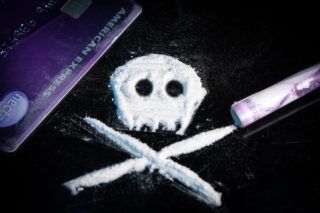Understanding Detox
Detox (or detoxification) means the process in which your body expels all traces of a particular substance. The goal of a detox is to focus on the physical symptoms of addiction and work through these before moving to the next step in recovery. Your body needs to get used to functioning without the substance, which can result in many withdrawal symptoms. Because detoxification can be an intensive and difficult process, it is the first part of treatment. Most rehab programs will focus on therapy and addressing the psychological effects of addiction at a later date.
During detox, the brain needs to adjust to a drop in many chemicals that it became dependent on during your addiction. This can be unpleasant and lead to withdrawal symptoms. A managed treatment program will ensure that detox is as comfortable as it can be and minimize the effects of withdrawal where possible. This is often through the use of medication and under the supervision of medical professionals. Detoxing without professional help is possible, but it comes with many challenges and is often unsuccessful.
Detox With Medical Supervision
If individuals choose to detox with medical supervision, they will undertake a medical assessment to determine their needs. Experts will assess the nature of the addiction and formulate a personalized treatment plan that takes all factors into consideration. They will look at the individual’s medical history to understand any issues that may arise during the detoxification process. This may include drug interactions or mental health issues that may be present.
What to Expect During Detox
It’s important to remember that detox is often different for everyone. The level of withdrawal symptoms an addict will experience depend on many factors. These include how long the person has been using the drug, the type of substance and the level of consumption. Other factors include the mental and physical health of the individual. Every detox is unique to the individual but there are common withdrawal symptoms that you may experience. Some of these are:
- Tremors
- Excessive perspiration
- Fever
- Fast heart rate
- Nausea and vomiting
- Diarrhea
- High blood pressure
- Cramping in the abdomen
- Muscular pain
- Headaches
- Cold and flu symptoms
- Tiredness and exhaustion
- Difficult sleeping and night terrors
There are also several psychological symptoms that individuals detoxing may experience. Some examples of these are:
- Feeling anxious
- Feeling paranoid
- Feeling confused
- Having difficulty concentrating
- Feeling agitated
Sometimes, individuals may experience more severe psychological symptoms often associated with psychosis. These can include having hallucinations, seizures and delirium. Although this can be distressing, it’s important to remember that with professional help, many addicts can detox in a safe and supportive environment.
Detox Length
The length of the detoxification process can vary depending on the individual. However, usually for most people, it is around seven to 10 days. The time taken to detox relates to the amount of the substance the person usually consumes, how severe their withdrawal symptoms are and their physical and mental health.
The Importance of Detox
Although detoxification can seem an unpleasant process that you may want to avoid, it is a necessary part of recovery. To function effectively, your body and brain need a careful balance of chemicals. Using drugs regularly upsets this balance and changes brain structure and hormone regulation. The neurotransmitters in your brain respond to drug use and tell it that using drugs is a pleasurable activity. Because of this, your brain and your body begin to crave the substance and you may need to consume the substance to feel normal.
When you detox, you force your body and brain to function without drugs and this leads to withdrawal symptoms. The crucial thing to remember is that by forcing your body to withdraw from the substance, you are also letting your brain chemistry recover. Withdrawal symptoms can be highly unpleasant, but they are temporary. Once your body can function without the presence of the drug, you can then focus on the psychological impact of your addiction.
Detox Severity and Drug Type
The substance that you are detoxing from can have a substantial impact on the severity and type of withdrawal. Detoxing from heroin is commonly considered to be one of the most uncomfortable detox experiences. Some drugs are more dangerous to detox from than others and usually require medication. These include benzodiazepines and alcohol among others. Withdrawal from some substances can result in seizures and sometimes death. It is therefore important to ensure you choose a managed detox with the help and support of professionals.
Detoxing Without Professional Support
Detoxing at home can be extremely dangerous and is also often ineffective. Choosing the “cold turkey” method isn’t a sensible option and can lead to serious consequences. Without professional intervention, you may be at risk of dehydration and seizures. You may need monitoring to ensure you are detoxing safely, so it’s never a good idea to try to detox at home.
There are three stages that ensure detox is successful under professional supervision. These include a medical evaluation that provides a comprehensive picture of the individual’s health. Then, therapy and medication are used to stabilize the individual and reduce the risks of any harm during the detox process. This stage also aims to reduce withdrawal symptoms before detoxification. The third stage is the detox itself, which is monitored by professionals to ensure safety and comfort.
The Risks of Detoxing Alone
Although it can be tempting to go “cold turkey” and detox alone, it can be fatal. This is especially true for detoxes that require medication. Detoxing alone from opiates, such as heroin can put you at risk of overdose. Withdrawing without support often leads to a relapse which can lead to an overdose. A medicated detox under the supervision of professionals means that the body safely tapers off opiates and decreases the chance of relapse.
For substances such as cocaine and cannabis, medication such as anti-nausea pills and SSRIs are useful to help the addict through detox. Some substances do not require a medicated detox, but the help and support from professionals can increase the chances of a successful recovery. It can also help to make detox feel more manageable and comfortable.
Detoxing at home can lead to:
Relapsing – Relapse is more common with home-based detoxes. This is because you lack the professional support you need to get through the withdrawal symptoms. Symptoms can be severe and cravings may be too intense and lead to a quick relapse. It is difficult to resist the urge to consume the drug when you know it will quickly relieve the unpleasant symptoms.
Overdosing – Although your home detox may seem like a quick fix, it can reset the chemistry in the body and brain. This means that if you relapse, your chance of overdose is higher. A dose that may have led to a high before the detox may now be too much for your body to cope with, which can be fatal.
Mental health problems – If you have mental health problems, a home detox can exacerbate these. It isn’t uncommon for someone detoxing to experience instances of panic, depression and intense frustration. Without the right support, your mental health can spiral rapidly and lead to relapse or a mental health crisis.
Medical problems – If you have an underlying medical condition you are unaware of, detoxing may bring this to light. A supervised detox will include a medical assessment and outline the safest way for you to detox.
Detox Is One Part of a Complicated Process
It’s really important to remember that detox is just one part of the recovery process. The purpose of detox is to remove the substance from the body. Drug addiction is incredibly complex and detoxing alone is not addiction treatment. Addicts require a form of rehabilitation and therapy to help them work through the issues that come with addiction.
Dealing with cravings, triggers and learning to reshape behaviors that led to the addiction are all essential parts of recovery. The impact of your addiction on yourself and others is highly complex and needs to be deconstructed and worked on through various means. Choosing to detox alone is not only dangerous, but it also only targets one part of the recovery process.
After Detox
Many addicts live happy lives free of substances after detoxing. However, this is usually only because they have had the support of professionals throughout the process. Detox is the start of recovery, so addicts that now live drug-free lives are often still receiving ongoing support. Following detox, the psychological effects of drug addiction can be addressed, which is essential. Recognizing the need for a comprehensive treatment program can help you succeed after detox.
Rehabilitation
Rehabilitation is the next step after detox. Addicts usually choose inpatient or outpatients rehabilitation programs depending on their needs. PHP (Part Hospitalization Program) is also an option. This type of program usually offers a higher level of care than an outpatient program. Patients usually enter this type of program following an inpatient or residential program and it allows a patient to gain support whilst reintegrating into life outside of hospitalization. It is a structured form of rehabilitation that allows addicts to build self-confidence and improve decision-making and communication to prepare for a healthier and happier life. You can contact us to discuss what the best option may be for you.
Preparing for Detox and Rehabilitation
Deciding to enter recovery is an enormous achievement. You have recognized that you have an addiction and are prepared to improve your future. It is normal to be dubious and apprehensive as detox and rehab are still the unknown. However, they are steps you’ll need to take if you want to live a drug-free life. It is essential that you prepare yourself mentally for recovery and take care of any responsibilities you may need to before entering treatment.
Although it can be a scary decision, remember that it is the right one. You are making a choice to regain control of your body and mind and be free of the shackles that come with addiction. Think about the reasons for entering treatment, you probably have many of them. Keep these in mind throughout the process to help motivate you to get through the difficult times.
If you can establish a support network outside of rehab before entering, this can be beneficial. If this isn’t an option for you, remember that you’ll also have the support of professionals throughout the recovery process.
Ensure Work and Family Are Taken Care of
Telling your employer that you’re entering recovery can be daunting. However, you have a legal entitlement to medical leave. Give your employer as much notice as possible so they can prepare. You should also ensure you arrange childcare if you need to. Ask family and friends to take care of your children while you’re in treatment.
Ensure Your Finances Are in Check
Set up automatic payments on any bills that may be due when you’re in treatment. You want to limit the financial stress that you return to after treatment.
Take Time Out
Entering treatment is a big deal. Be sure to take some time out and practice self-care before your detox. Be kind to yourself and allow yourself to relax.
Arrange Treatment
Arranging treatment is the most important part of preparation. Be sure to have everything in place so that you can detox safely under the care of professionals. Contact us today via email or call us on (855) 491-7694. Our team of professionals has vast knowledge and experience of working with people just like you. Ask us any questions you may have and we’ll be happy to help.







